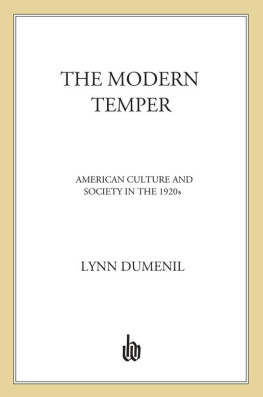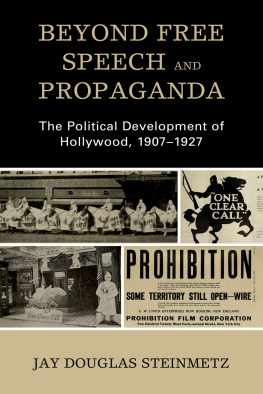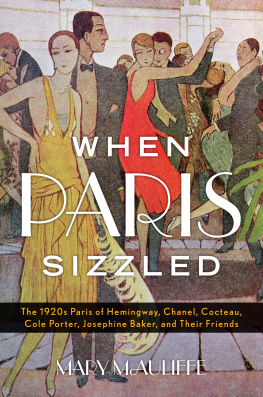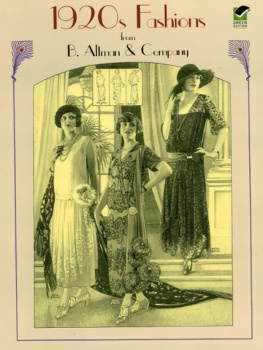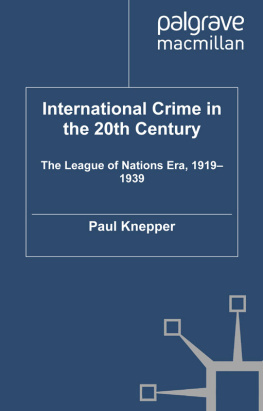THE GLOBAL 1920S
The 1920s is often recognised as a decade of fascism, flappers and film. Covering the political, economic and social developments of the 1920s throughout the world, The Global 1920s takes an international and cross-cultural perspective on the critical changes and conditions that prevailed from roughly 1919 to 1930.
With twelve chapters on themes including international diplomacy and the imperial powers, film and music, art and literature, women and society, democracy, fascism, and science and technology, this book explores both the big questions of capitalism, class and communism on the one hand and the everyday experience of citizens around the globe on the other. Utilising archival sources throughout, it concludes with an extensive discussion of the circumstances surrounding the 1929 stock market crash and the onset of the Great Depression, the effects of which were felt worldwide.
Covering topics from the oil boom in South America to the start of civil war in China, employment advances and setbacks for women across the globe, and the advent of radio and air travel, the authors provide a concise yet comprehensive overview of this turbulent decade. Containing illustrations and a selection of discussion questions at the end of each chapter, this book is valuable reading for students of the 1920s in global history.
Richard Carr is a lecturer at Anglia Ruskin University, UK. He has written several books on political history including Veteran MPs and Conservative Politics inthe Aftermath of the Great War: The Memory of All That. He is currently authoring a biography of Charlie Chaplin for Routledge.
Bradley W. Hart is an assistant professor at California State University, Fresno, USA. His previous works include George Pitt-Rivers and the Nazis, a biography of a prominent British anthropologist and fascist sympathiser, along with the co-edited volume The Foundations of the British Conservative Party.
DECADES IN GLOBAL HISTORY
This series takes a fresh view of decades in history, discussing each period from a truly global perspective and interrogating the traditional trope of a decade. In asking questions about what each decade actually represents throughout the wider world and exploring the transnational connections that shaped its course, this global approach allows the reader to see the great events of each decade as intricately bound into and moulded by international forces.
Titles in the series:
The Global 1920s
Richard Carr and Bradley W. Hart
Forthcoming titles:
The Global 1970s
Duco Hellema
The Global 1980s
Jonathan Davis
The Global 1930s
Susan Kingsley Kent and Marc Matera
THE GLOBAL 1920S
Politics, economics and society
Richard Carr and Bradley W. Hart
First published 2016
by Routledge
2 Park Square, Milton Park, Abingdon, Oxon OX14 4RN
and by Routledge
711 Third Avenue, New York, NY 10017
Routledge is an imprint of the Taylor & Francis Group, an informa business
2016 Richard Carr and Bradley W. Hart
The right of Richard Carr and Bradley W. Hart to be identified as authors of this work has been asserted by them in accordance with sections 77 and 78 of the Copyright, Designs and Patents Act 1988.
All rights reserved. No part of this book may be reprinted or reproduced or utilised in any form or by any electronic, mechanical, or other means, now known or hereafter invented, including photocopying and recording, or in any information storage or retrieval system, without permission in writing from the publishers.
Trademark notice: Product or corporate names may be trademarks or registered trademarks, and are used only for identification and explanation without intent to infringe.
British Library Cataloguing in Publication Data
A catalogue record for this book is available from the British Library
Library of Congress Cataloging in Publication Data
Carr, Richard, 1985- author.
The global 1920s : politics, economics and society / Richard Carr and Bradley W. Hart.
pages cm. -- (Decades in global history)
Includes bibliographical references and index.
ISBN 978-1-138-77478-0 (hardback : alk. paper) -- ISBN 978-1-138-77479-7 (pbk. : alk. paper) -- ISBN 978-1-315-64072-3 (ebook) 1. Nineteen twenties. I. Hart, Bradley W., author. II. Title.
D720.C36 2016
909.822--dc23
2015032886
ISBN: 978-1-138-77478-0 (hbk)
ISBN: 978-1-138-77479-7 (pbk)
ISBN: 978-1-315-64072-3 (ebk)
This book would not have been possible without the assistance of a number of individuals who deserve recognition. Firstly, we are grateful to Amy Welmers and the staff at Routledge for making this project possible and bearing with us through several delays in the writing process. Eve Setch was tremendously encouraging in commis-sioning the work in the first place. In addition, we are grateful to the anonymous peer reviewers who made a number of helpful suggestions throughout the project.
During the research and writing process itself, we have been fortunate to draw on the assistance of a number of current and former students who showed a keen interest in the project and will undoubtedly soon be writing books of their own. In California we received the valuable and extraordinary assistance of Gavin Baird, Isa Chancey and Megi Hakobjanyan, all of whom brought their unique skills and insights to the project. In Egypt, we were fortunate to have the help of Sumaya Attia, and in Cambridge we received the research and statistical support of Josh Younespour.
Teaching with Lucy Bland, Jon Davis, Sean Lang and Rohan McWilliam on various modules at Anglia Ruskin (ARU) which intersect with this period certainly helped sharpen some of the chapters. Alison Ainley has always been a model of kindness and help as Head of Department for Humanities and Social Sciences at ARU. In addition, the faculty of California State University, Fresno, provided important support throughout the writing process. Our students, past and present, provided many valuable questions and insights which have added to this work in innumerable ways.
Finally, we would be remiss to not include a word of thanks to the Master and fellows of Churchill College, Cambridge, for all the support rendered during the research and writing process of this book, among other projects. Specifically, Allen Packwood and his staff at the Churchill Archives Centre, Cambridge, have always been immensely helpful and hospitable. We offer our sincere thanks for all their support.
Chaos broke out on New York Citys Wall Street on the afternoon of 29 October 1929. Sweat-drenched men flooded out of the stock exchange, some heading for the church at the end of the block where they huddled together regardless of their faith (or lack of it). Others prayed and wept on the edges of the trading floor in scenes replicated across New York and beyond. Entire fortunes were wiped out that afternoon, symbolically marking the beginning of the period remembered today as the Great Depression, and many more would be lost in the months to come. Rumours began to spread around the country of businessmen committing suicide in the days and weeks that followed the crash and, while sometimes exaggerated, there were documented cases of people taking their own lives rather than face life after being ruined. The dream of the Roaring Twenties had crashed to an abrupt halt on the streets of New York, and the pain would soon spread around the globe. Two years after the crash, the British government would be forced to abandon the gold standard amidst a run on the countrys gold reserves, humiliating the countrys government and further rupturing the interwar world financial system. At the same time, the German government stood on the brink of collapse in the face of skyrocketing unemployment. In 1933, Adolf Hitler would become the countrys Chancellor and bring an end to the democratic experiment of the Weimar Republic.


